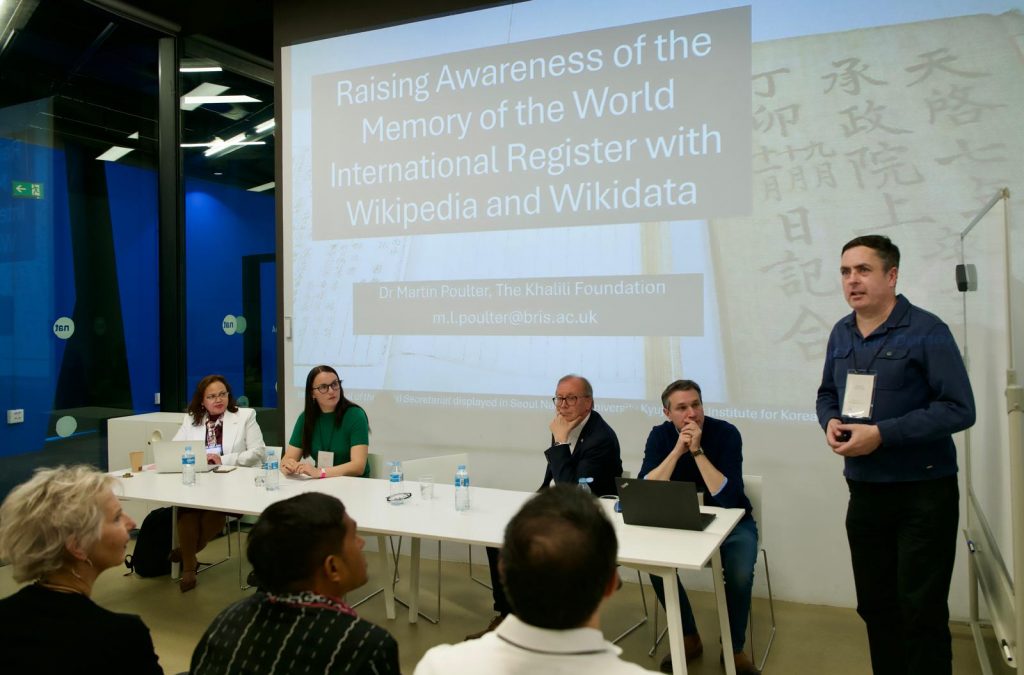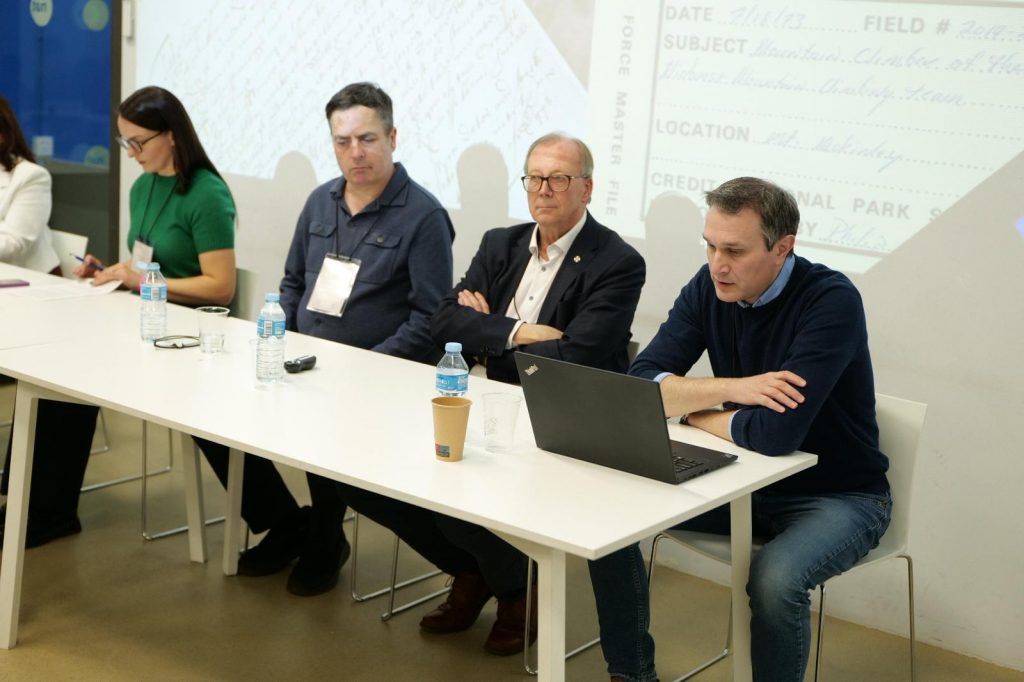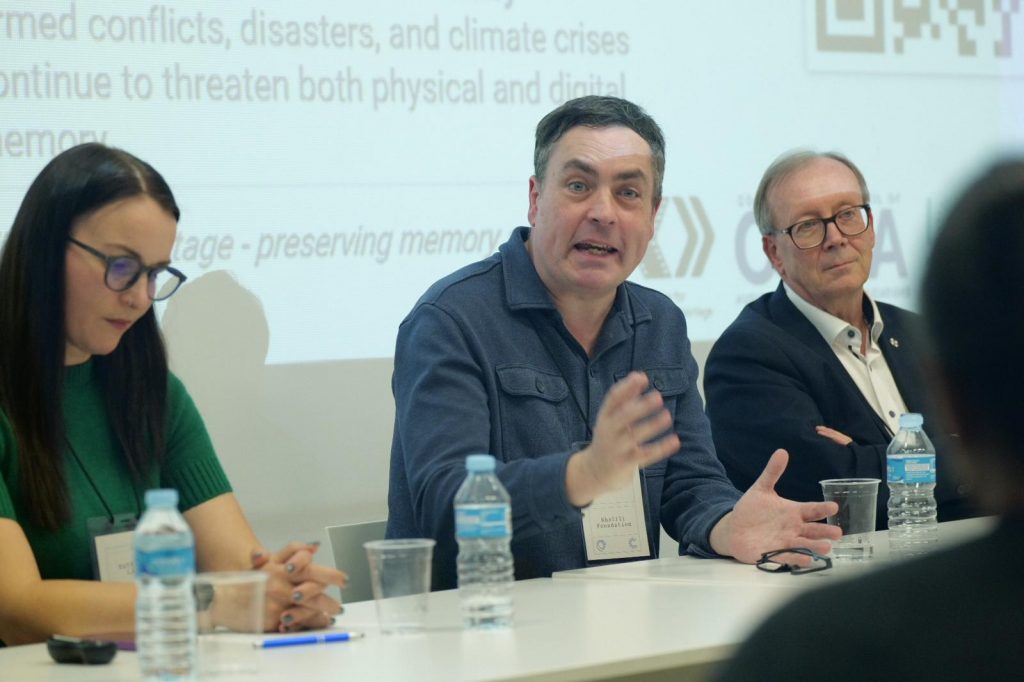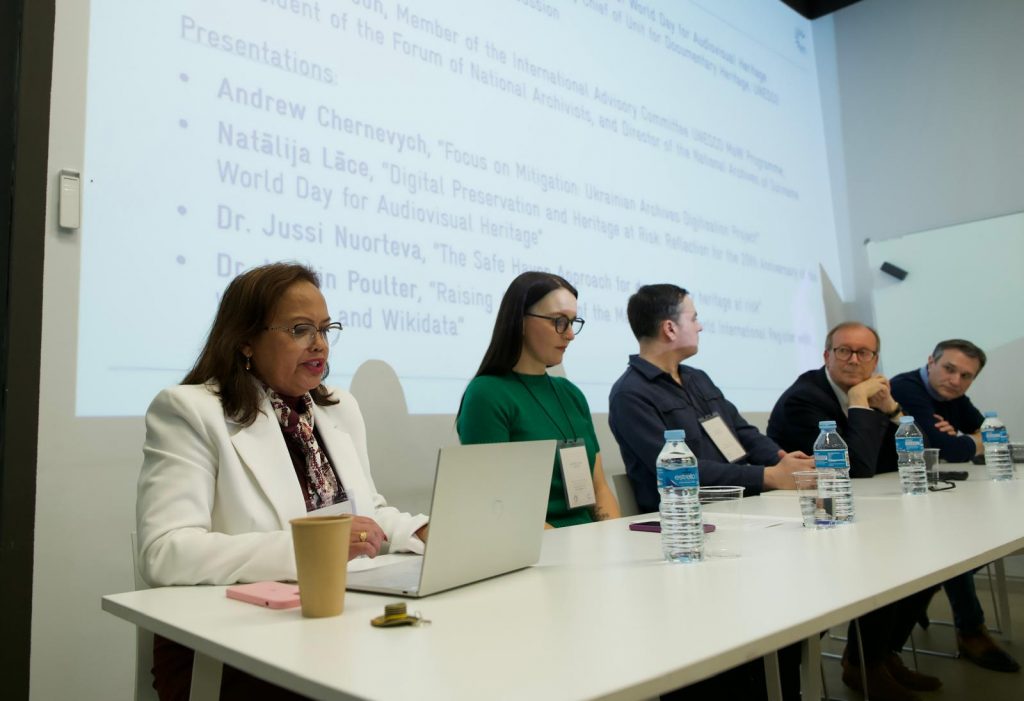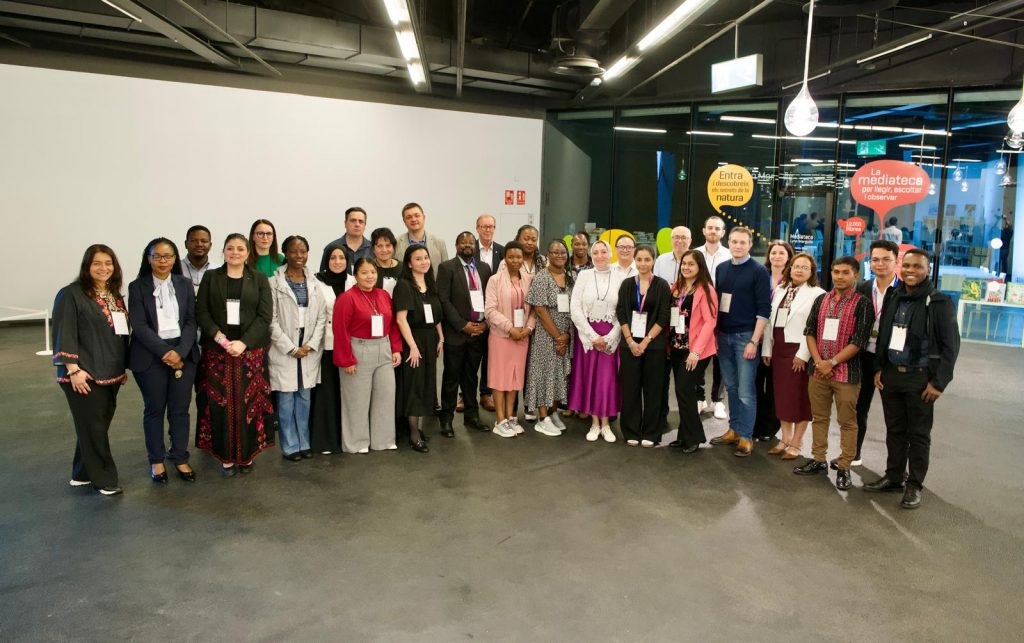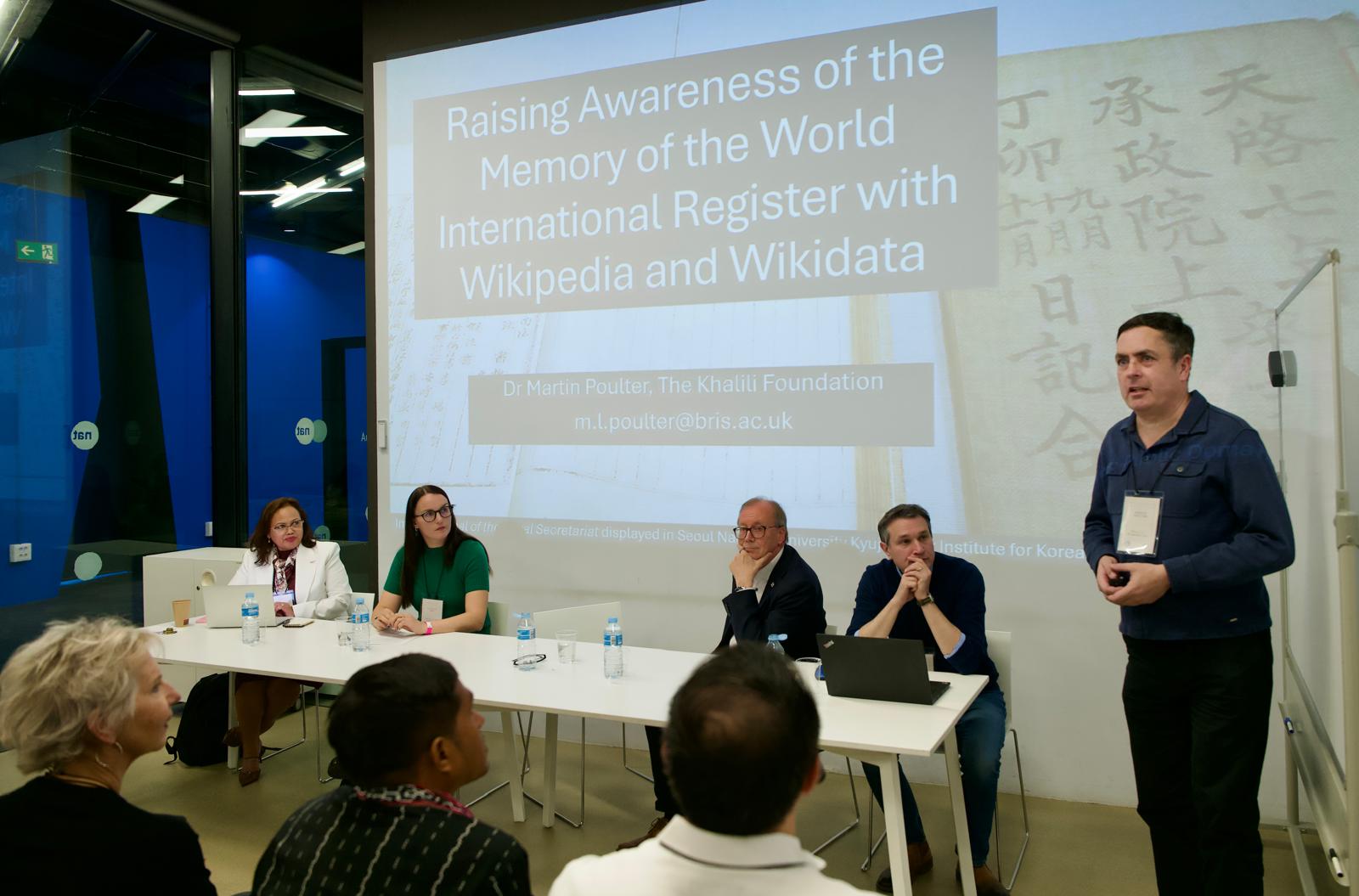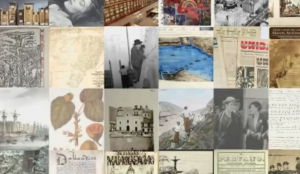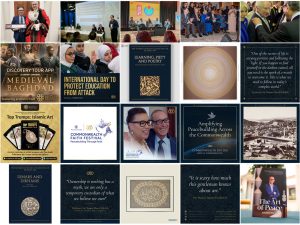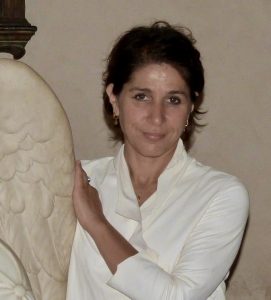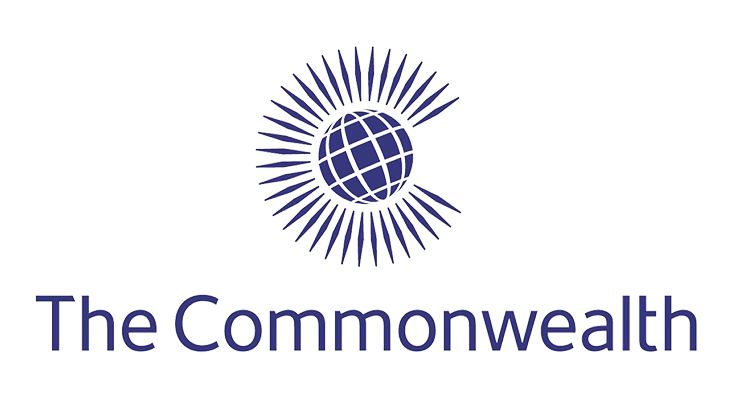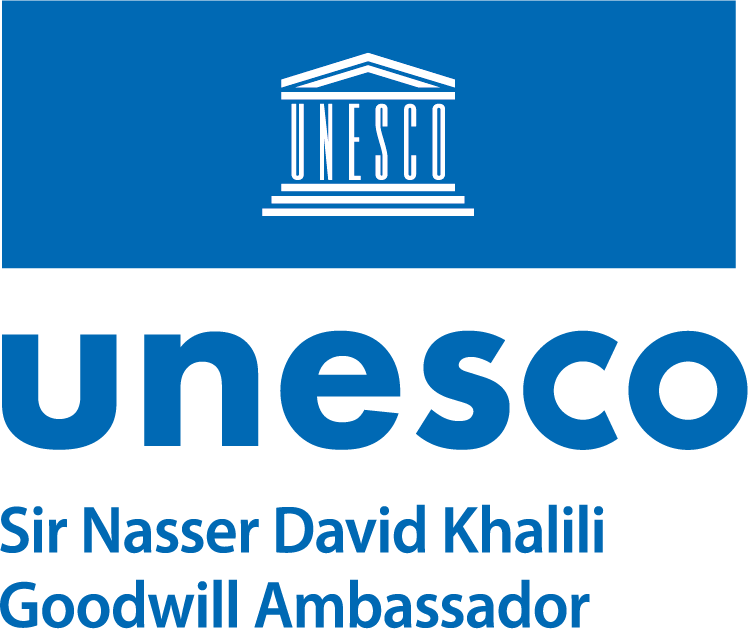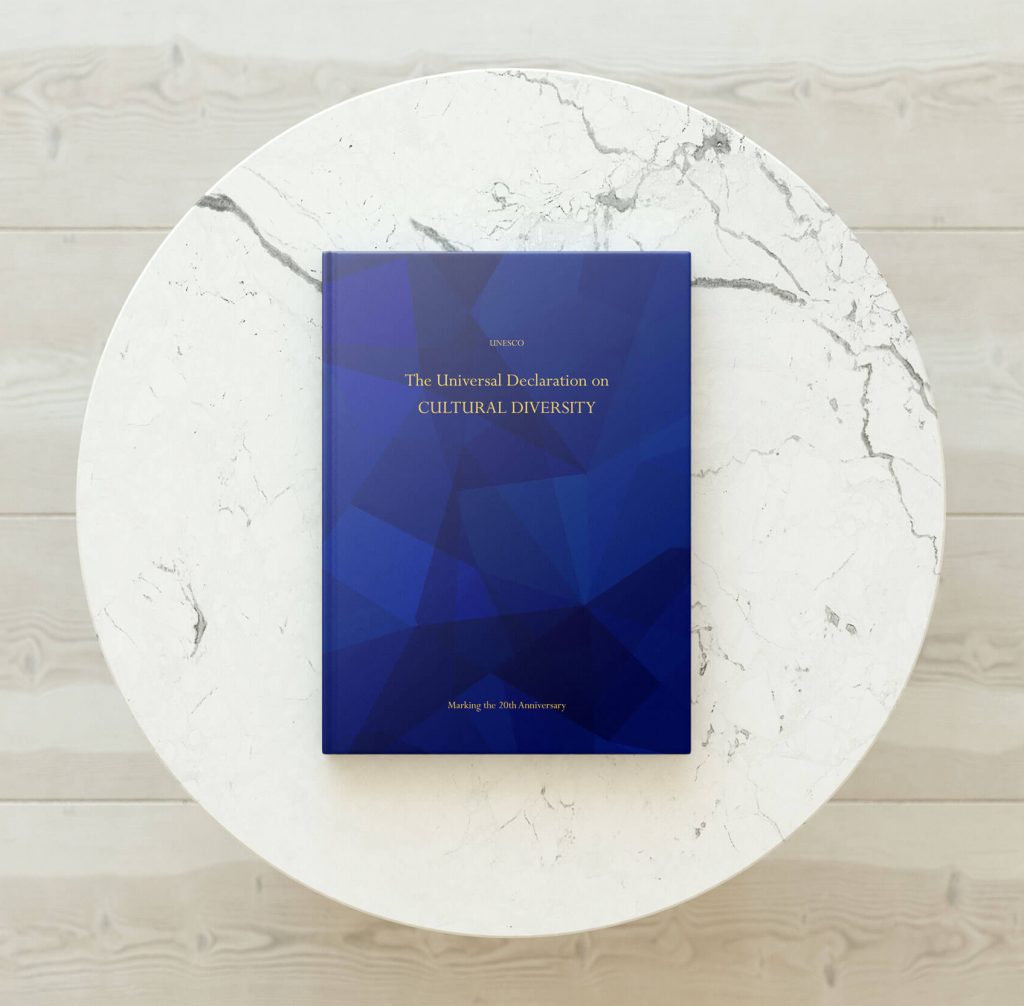The Khalili Foundation took part this week at a workshop on Promoting and Safeguarding Documentary Heritage. The event was held in Barcelona by the UNESCO Memory of the World team and the International Council of Archives (ICA), as an adjunct to the ICA’s conference. It involved an audience of young professional archivists, brought from many countries around the world.
In a panel of four speakers, Dr Martin Poulter, the Foundation’s Wikimedian In Residence described the Foundation’s work to make the Memory of the World International Register visible to new audiences. He explained the functions of the Wikimedia sites in preserving documentary heritage for the long term: Wikimedia Commons for digital media and their descriptions, Wikisource for transcribed text, Wikipedia for contextual articles and Wikidata to connect all these resources in a form that can be used by machines. Through these platforms, the Memory of the World inscriptions are reaching an enormous audience: roughly 100 million image views for the month of September.
Discussion in the room covered many topics including generative AI (which Wikimedia uses as an assistive tool, not a way to directly generate articles or transcriptions) and the heritage of Africa (which has been one of the main thrusts of the current Khalili/UNESCO project). The meeting was also addressed by Josée Kirps, President of the ICA.
This work continues a long partnership between the Khalili Foundation and UNESCO. Sir David Khalili is a UNESCO Goodwill Ambassador and his charity has previously supported activities including a book and film about the UNESCO World Day for Cultural Diversity for Dialogue and Development.
